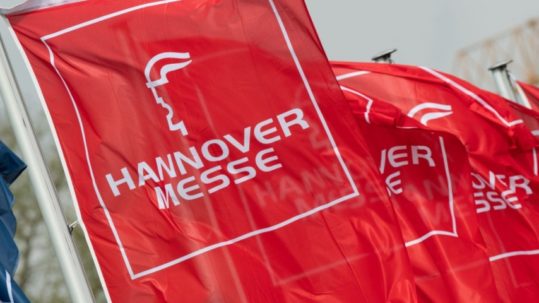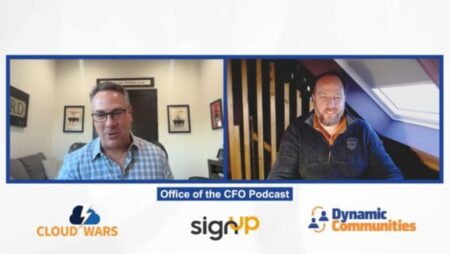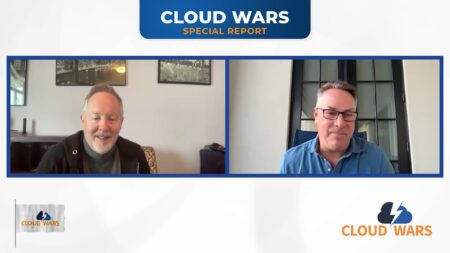Looking to gain mindshare and revenue in the booming global industrial sector, Microsoft hosted nine disruptive startups at the world’s largest manufacturing event in yet another example of how Microsoft’s innovative go-to-market strategies have become an enormous factor in its rise to the top.
At the recent Hannover Messe in Germany—which drew 200,000 visitors from 75 countries—the nine startups showcased their Azure-based products and solutions. Meanwhile, Microsoft’s sales and marketing teams connected those young companies with industrial prospects, customers and the vast Microsoft partner ecosystem.

By expanding its unique—and what I’ve called “revolutionary”—co-sell model, Microsoft not only deepens and extends the value it offers to its customers and prospects, but also forges deep and lasting relationships with dynamic entrepreneurs and their cutting-edge approaches to the industrial marketplace.
The co-sell program with digital-industrial startups is a direct manifestation of CEO Satya Nadella’s vision. Namely, that in today’s digital economy, it’s no longer enough for Microsoft to simply sell packaged software that businesses consume. Instead, Microsoft must also help those businesses become developers of their own software and related technologies.
And by showcasing for industrial customers not only its own technologies but also those of innovative startups offering solutions centered on cloud, IoT, AI, big data and ML, Microsoft gains extremely valuable insights. It can thus better understand the needs and future directions of the enormous global industrial sector.
*******************
RECOMMENDED READING FROM CLOUD WARS:The World’s Top 5 Cloud-Computing Suppliers
Amazon Versus Oracle: The Battle for Cloud Database Leadership
Why Microsoft Is #1 in the Cloud: 10 Key Insights
SAP’s Stunning Transformation: Qualtrics Already “Crown Jewel of Company”
Watch Out, Microsoft and Amazon: Google Cloud CEO Thomas Kurian Plans To Be #1
Oracle, SAP and Workday Driving Red-Hot Cloud ERP Growth Into 2019
The Coming Hybrid Wave: Where Do Microsoft, IBM and Amazon Stand? (Part 1 of 2)*********************
Here’s a quick overview of the solutions offered by the nine startups that Microsoft showcased at the Hannover event. While each of these are impressive, I found the first three to be particularly notable:
- An airspace-management system for drones called AirMap;
- An end-to-end 3D-printing system called Markforged;
- A process-based industrial AI system that predicts and prevents manufacturing disruptions and is called Seebo;
- Machine data for manufacturing;
- Blockchain solutions;
- Forecasting analysis and enhancement;
- HPC simulations in the cloud;
- ML in edge devices; and
- AI and big data in manufacturing.
As I mentioned above, for all of Microsoft’s own achievements on the technology side across its massive portfolio of enterprise solutions, the company’s go-to-market strategies have been equally transformative. Because those strategies center on driving new levels of customer value and not just on serving Microsoft’s short-term self-interest.
A couple of months ago, in a piece called How Microsoft’s Revolutionary Partner Program Is Driving Hypergrowth in the Cloud, I described how the One Commercial Partner team under Gavriella Schuster is willing to completely flip the traditional tech-industry partnership model of “we make, you sell” to “you create something great around our technology, and we’ll sell it for you.”
This latest version of that outside-in model with the digital-industrial startups at Hannover is just the most recent indication of why Microsoft is the #1 enterprise-tech company in the world.
I wouldn’t be surprised to see Microsoft’s competitors begin developing or expanding their own startup-ecosystem programs. It will only be a matter of time before innovation-hungry customers begin demanding exactly that.
Disclosure: at the time of this writing, Microsoft is a client of Evans Strategic Communications LLC.
Subscribe to the Cloud Wars Newsletter for in-depth analysis of the major cloud vendors from the perspective of business customers. It’s free, it’s exclusive, and it’s great!







